How Old Are Your RV Tires?
In the past month, I have had several RVers share stories with me about buying an RV only to find out that the tires were much older than the RV. This is a topic we talk about in our tire safety seminars, and I thought I would cover it in this newsletter. I am speaking more about Class A motorhome tires, but much of the information can be applied to smaller RV tires as well. Did you know that much of the information you need to know about your tires is actually on your tires? Each tire has a birthday, and that birthday is stamped right on the tire along with a Department of Transportation (DOT) code that give you a lot more information. Each tire will have a DOT code and if you look at the sidewall of your tire, you will see the DOT code because it starts with “DOT.” Now, if you don’t see it on the side wall of the first tire you walk up to, then move to another tire to find it as the DOT code is usually printed on one side of the side wall. Once you find the DOT code, you will see a lot of numbers and letters that seem to mean nothing. The first 8 characters are referring to tire plant's codes and size /dimensional information, but what we want to talk about is the last 4 numbers in the DOT code.
The last four numbers are actually the birthday of the tire. So, if you see 2416, then this means the tire was born on the 24th week of 2016. So why is this important? Well, let's go back to the RVers that bought a RV that had old tires and did not know it. An average RV (motorhome) tire can last 5-7 years, and RVers will age out their tires well before they will wear them out. RV tires are designed to run about 250,000 to 300,000 miles. Most RVers will not run this many miles in a 5-7 year period, so this is why RVers will change out tires while the tire may seem to have plenty of tread left. If you go to buy a used RV, it is important to look at the age of the tires, and if the tires are at the end of their life, then you should work that into the negotiation process. Should this be a concern when buying a new RV? Yes, it absolutely is. Maybe it should not be a concern, but we hear stories all the time of people buying a new RV and then finding out the tires were a year or two older than the model year of the RV. How would you like to spend all that money on an RV to find out that the tires are 15% through with their average life?
Another way to get some good information about your tires is to go to a website called tiresafetygroup.com. When you go to this site, you will see a place to enter your DOT code from your tire. Once you enter your tire's DOT code, the site will tell you where the tire was manufactured, if there are any recalls, how old the tire is, and other helpful information. Go ahead and enter the DOT code from your tires and see what it says. In addition, if you are buying a new or used RV, then you should enter the DOT code into this site to make sure the tires you are getting are what you are expecting.
Before I leave this topic, let me leave you with 5 bullet points of good information to know about your RVs tires:
- Long-term direct exposure from sunlight can be bad for tires. UV is a known issue that can shorten the life of a tire. Buy some tire covers to prolong the life of your tires. I use the Magne Shade tire covers, but there are many on the market that will work.
- Tires need to be exercised! Tires are designed to be used, and when they sit for long periods of time then this can lead to the compounds in the tires to begin to leach out onto concrete or asphalt. Have you ever seen someone leave a site and there was a black patch where their tire was? This is my point. If you are going to park your RV for a long period of time, then try to figure out how you can get those tires out on the road periodically - the more the better. Exercise those tires!
- Do not use tire cleaners that are petroleum based. Really the best way to clean tires is with a mixture of mild soap and water. If you start using cleaners that make your tires shiny, then you may want to read the ingredients to make sure it is not petroleum based. I like shiny tires as much as the next guy, but this is not always good for the tire.
- Underinflation causes heat, and heat is the death of a tire. Depending on the brand of tire, a tire can start to break down at around 200 degrees. Some things that can cause high heat are underinflation, ambient temperature, brakes locking up, and even bearings locking up. A good TPMS will alarm you if you start getting high heat on a tire position. What ever you do, do not run underinflated! I have written articles and made videos on how to determine your proper tire pressure if you are interested.
- Visually inspect your tires before each day of driving. A lot of times if a belt or cushion in the tire has been damaged it may show exterior signs that you can see. Be on the look out for bulges, cuts, cracking, and if you have dual tires then be sure to look in between them to make sure nothing is lodged between them. Many blow outs can be avoided just by identifying the signs of tires breaking down and then taking it to a tire professional to give recommendations.
One of the best ways to monitor your tires is with a Tire Pressure Monitoring System. As full time RVers, we have used the TST exclusively for the past few years on our motorhome and Jeep. To shop the TST Tire Pressure Monitoring Systems, click here.



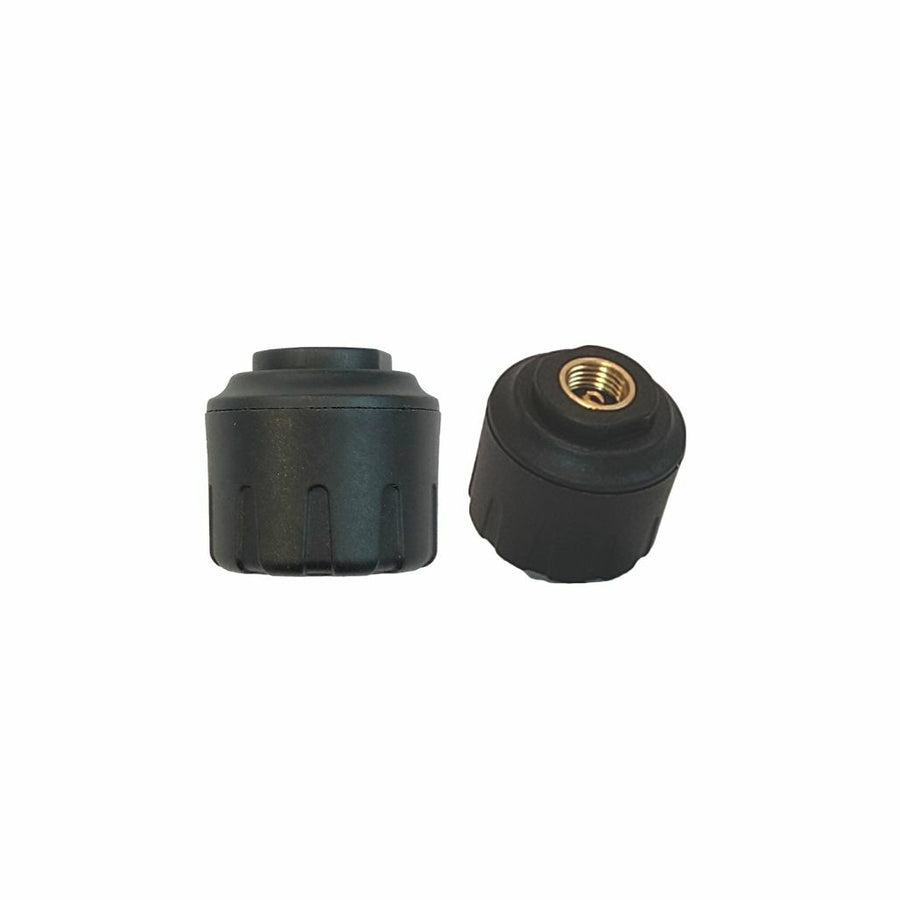
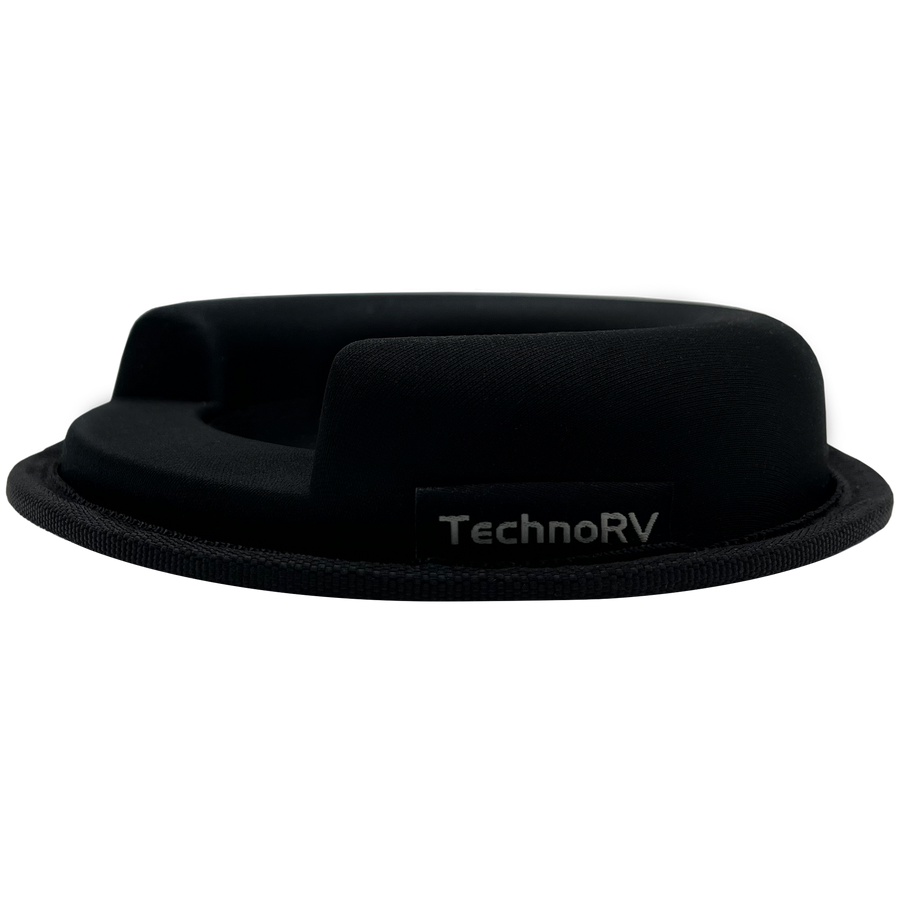

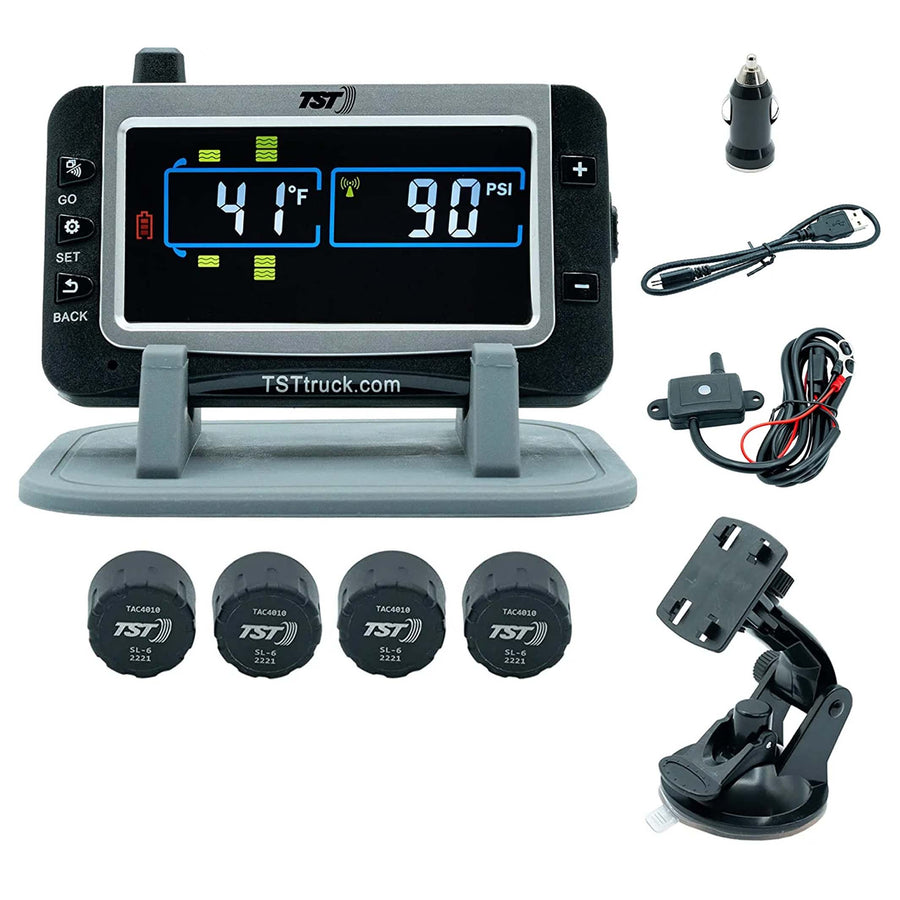
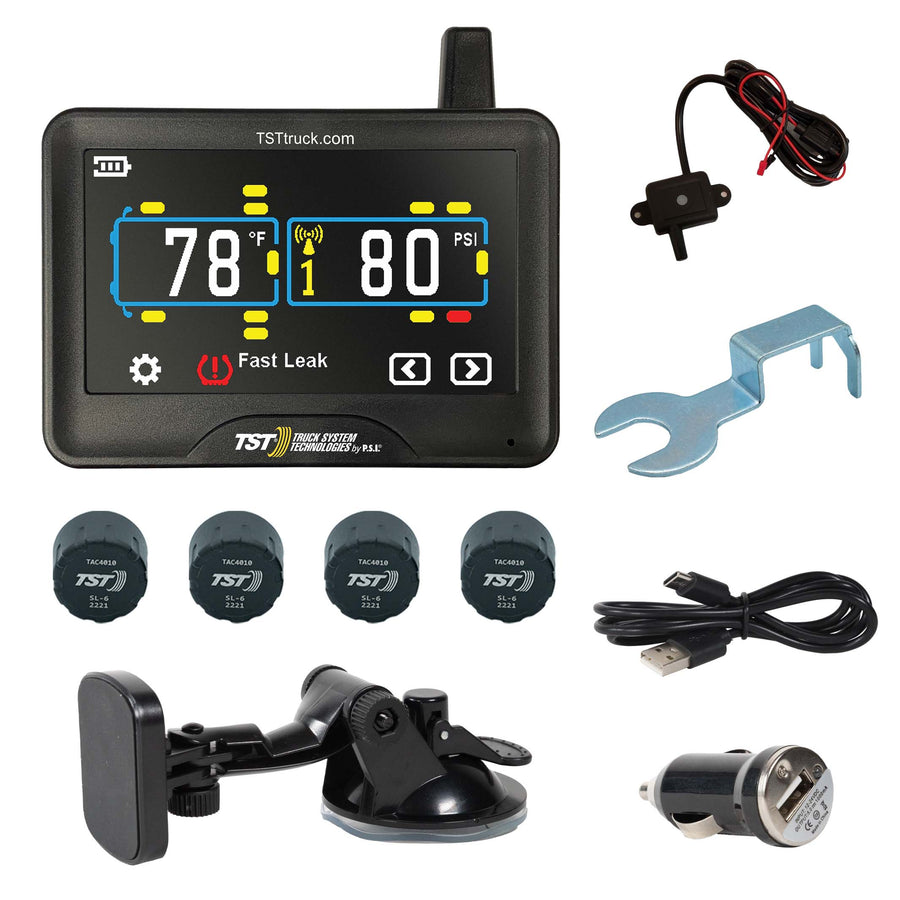
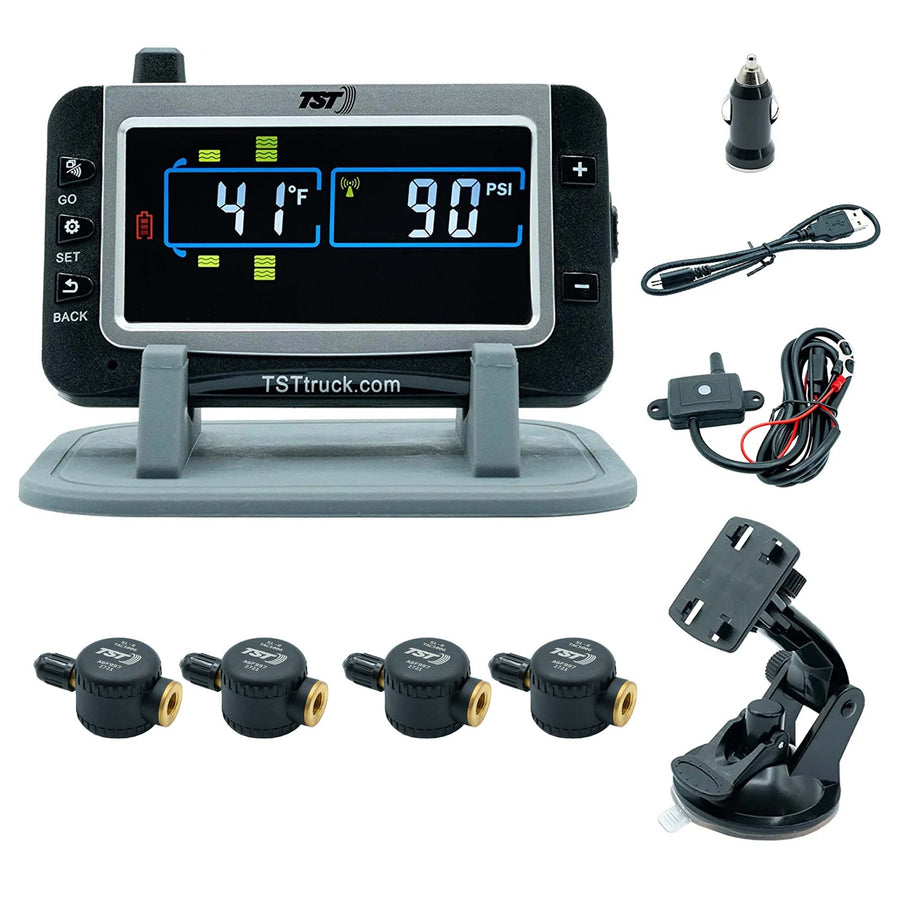
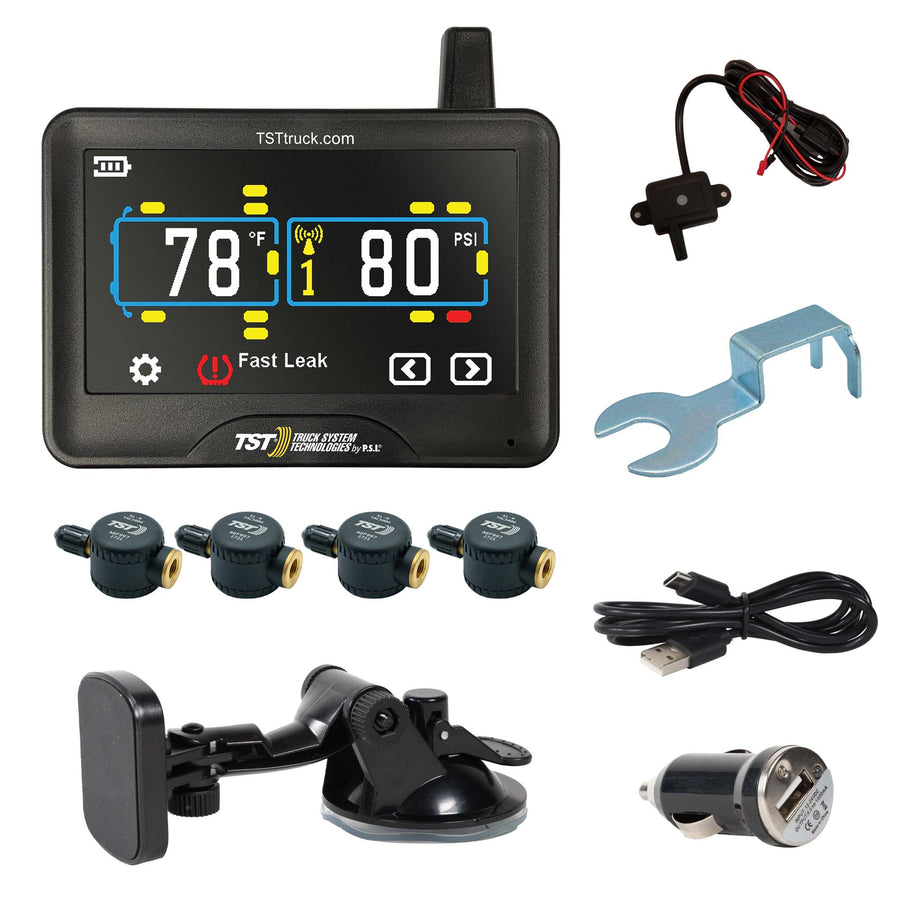

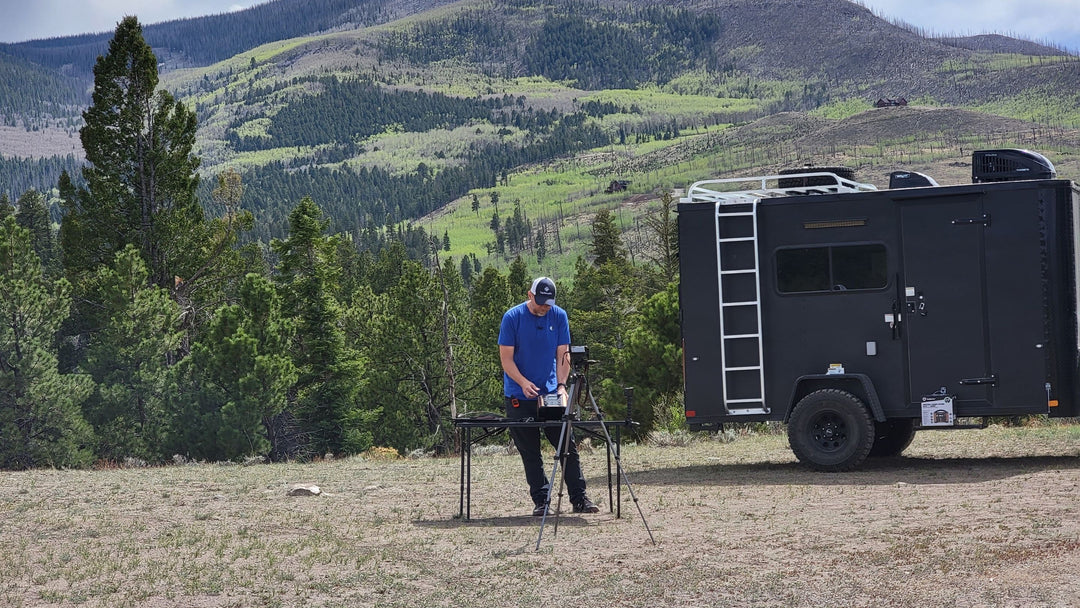

Leave a comment